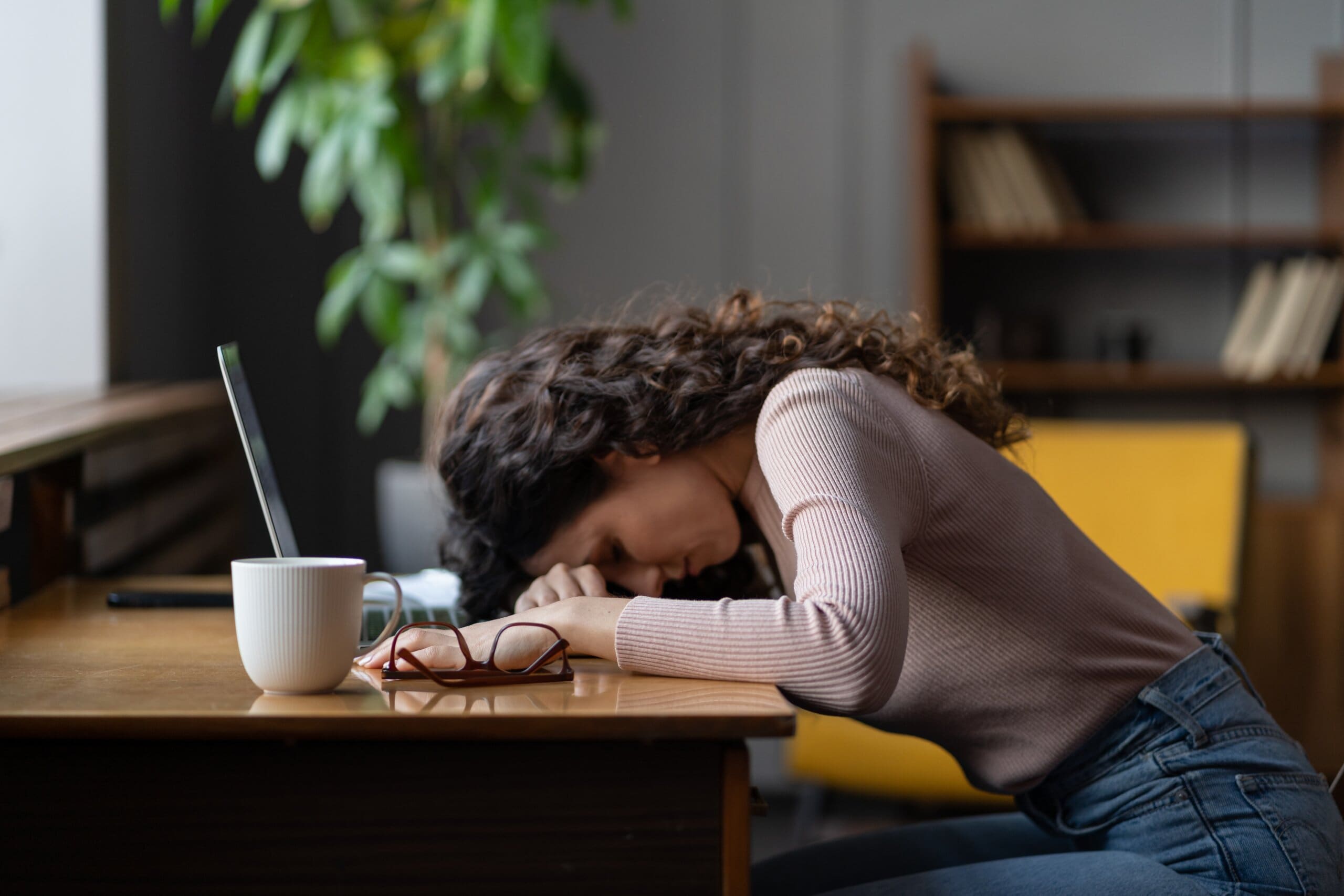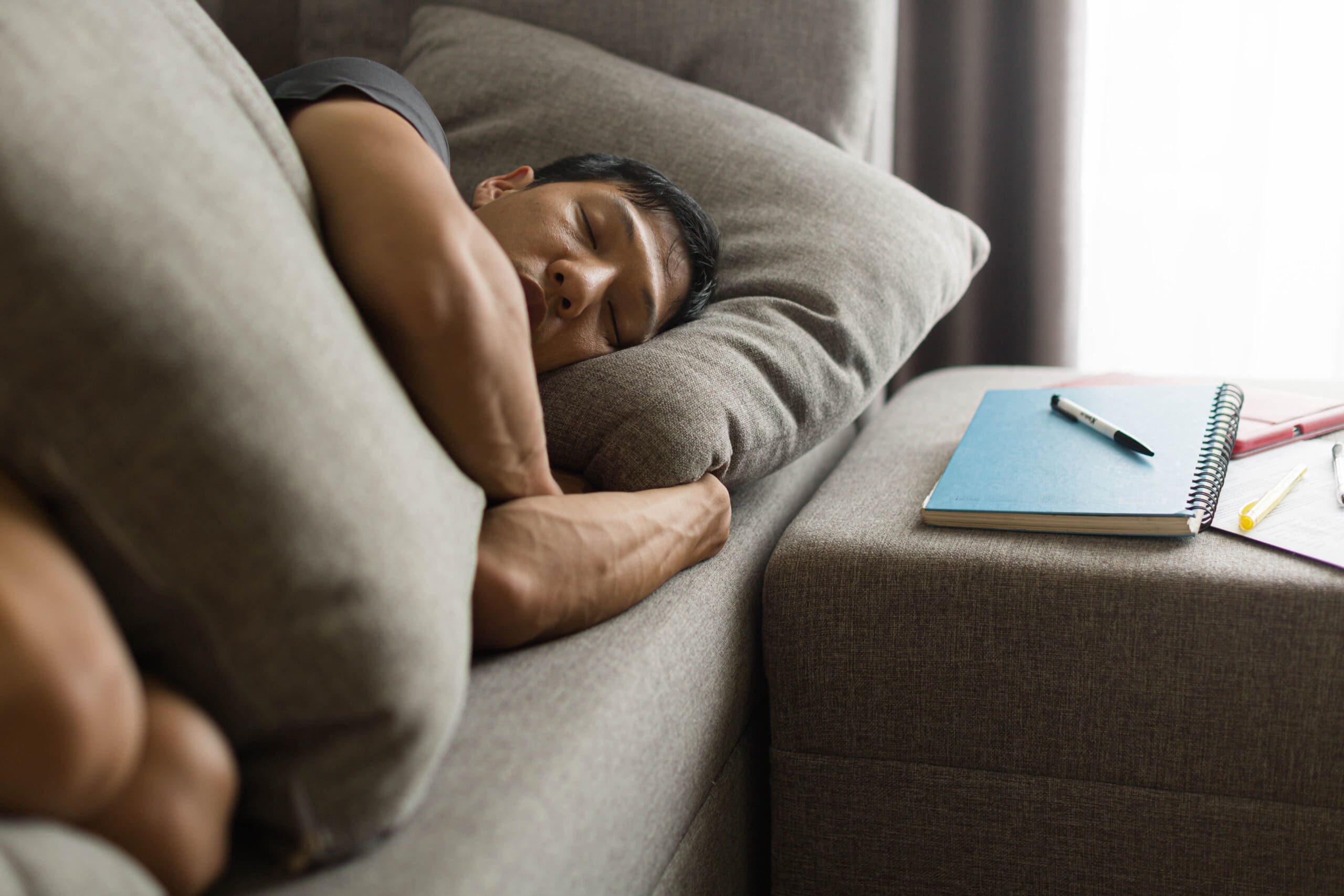Fed up of sleeping too much? Maybe you've only recently started sleeping too much, and are worried it might be a cause of concern. There are many reasons you might be sleeping too much all of a sudden, from mental health issues to lifestyle changes, so read on to discover how you can start feeling alert and awake all day, every day.

What is Hypersomnia?
Put simply, Hypersomnia is excessive sleeping. This includes feeling sleepy throughout the day and taking naps during the day, but still sleeping for long hours at night. Hypersomnia is not the same as simply feeling tired all the time - instead, this condition can seriously impact your quality of life and cause or worsen mental health problems.
Of course, even if you don’t have Hypersomnia, you may still be struggling with feeling incredibly tired during the day. Sometimes this is because your circadian rhythm is off, and you may struggle to sleep at night but find yourself drifting off during the day. Our guide to how to reset your circadian rhythm will help you get your sleeping schedule back on track.
The easiest way to determine if you have Hypersomia, aside from speaking to your doctor, is if you actively sleep at multiple periods throughout the day or simply cannot stay awake or alert, even when you’ve had adequate sleep at night. You will generally be asleep more than you are awake in a 24-hour period, or find it incredibly difficult to stay attentive, even if you’re not doing anything that requires maximum brain stimulation. You do have to alert the DVLA if you’re diagnosed with Hypersomnia, as it could be unsafe for you to drive.
What causes excessive sleeping?
There are many things that can disrupt your sleep and cause you to feel more tired during the day than you should. For those who don’t necessarily have Hypersomnia, but still struggle to stay awake during the day, these might be the causes:
Shift work and lifestyle changes
Working shifts can cause you to feel tired all the time as it knocks your circadian rhythm out of line. If you work night shifts, you’ll be expected to be awake and alert when the sun is down, at the time your body is trying to produce melatonin. When the sun is up and it’s trying to get you to produce energy, you’ll be wanting to get your much-needed sleep. You’re essentially fighting your body as it tries to tick through your internal body clock!
Shift workers are far more likely to suffer from insomnia as well as excessive sleepiness. Read our guides to getting more sleep as a shift worker and sleeping better if you work two jobs for help.
Similarly, lifestyle changes like a newborn baby or exam season can throw your sleeping pattern out the window - our guide to getting enough sleep in unconventional circumstances will help.

Stress and mental health
Stress, especially chronic stress, can cause serious fatigue. When stressed, your body essentially goes into ‘fight or flight’ mode, and sleeping is the ‘flight’. Sleeping too much when you’re going through a stressful time is a psychological coping mechanism from your nervous system - instead of having to face the reasons for your stress, you can just sleep it all away…
Of course, sleeping all day won’t remove the causes of your stress, and most times it’ll just make it worse and cause your mental health to deteriorate. Stress also causes some areas of your brain to inflame, which results in symptoms like fatigue.
There are strong links between mental health and sleep, with both affecting the other. Similarly to stress, when your brain feels depressed or anxious, it may choose to sleep as a self-preservation tactic. As we go into in more detail in our guide to the link between sleep and mental health, illnesses like depression and anxiety can make you sleep more and feel tired during the day.
‘Depression naps’, which you might’ve seen people talking about on TikTok, are examples of where you might feel so exhausted from fighting with your mental illness to stay awake, that you end up needing to sleep. If you find yourself taking a lot of depression naps, you should talk to your doctor to help you manage your mental health symptoms. Some anti-depressants and other medications for mental health disorders can also make you sleepy.
Deficiencies and underlying medical problems
You might find that you’re sleeping too much all of a sudden because of an underlying medical issue or a deficiency. You might find you’re sleeping too much in the autumn and winter due to not getting enough Vitamin D, which is linked to SAD (Seasonal Affective Disorder). An underactive thyroid and iron deficiency can also cause you to feel tired all the time, so ask your doctor to be tested for these if you find you’re sleeping too much all of a sudden.
As we mentioned, medications for mental health disorders can cause tiredness, as can other medications such as beta-blockers, which are used to combat heart problems and anxiety. Pregnancy can also cause you to want to sleep all the time, so consider whether this is a possibility.
Chronic illnesses, such as Fibromyalgia or Myalgic Encephalomyelitis (chronic fatigue syndrome) could also be why you’re sleeping so much. Other symptoms of these conditions include weight loss and extreme sensitivity, so do your research and contact your doctor if you think it’s necessary to do so.

Diet and (lack of) exercise
You may also be sleeping so much because of your diet. If you’ve recently started a diet to lose weight, you might’ve cut your calorie intake. However, your body needs a certain amount of calories for fuel to keep you going. If you cut your calories drastically, your body will be running off of fumes, with nothing to give it the energy to keep you awake and alert.
Foods that are high in fats will make you sleepy, such as fried and processed foods. While these are healthy (and tasty) in moderation, too many can make you lethargic and sleepy. Instead, reach for energy-boosting foods like bananas, oats, and whole grains.
These foods will help to energise your body and make it easier to exercise, which will also make you more alert. One of our tips for feeling awake fast is to get some quick exercise in, and doing this regularly will help you stop feeling so tired all the time.
How to stop sleeping too much
If you think you have a condition like Hypersomnia, Fibromyalgia, or depression that’s causing you to sleep too much, you should contact your doctor for help. However, if you’re certain these don’t apply to you, and you’re getting at least eight hours of sleep at night, consider these tips for feeling more alert during the day.
Sip water throughout the day
Instead of reaching for a coffee or energy drink, which will result in the inevitable ‘crash’, keep sipping on water throughout the day. Staying hydrated will keep your brain healthy and working at its best. Dehydration can cause fatigue, so make sure you’re getting enough water all day long.
Prioritise breakfast and lunch
Foods with a high sugar content also give you that ‘low’ once your sugar levels have peaked. So while they will help you feel alert fast, they will make you feel more tired in the long run. Instead, maintain a consistent level of energy throughout the day by ensuring your breakfast and lunch is optimised to stop you from feeling tired.
Oats are a great breakfast, as they slowly release energy throughout the day and are better than processed breakfast cereals which will cause a sugar crash later in the day. For lunch, make sure you’re getting enough calories for body fuel without filling yourself up so much that you feel lethargic. Lean meats like chicken and fish will give you a good amount of protein without too much saturated fat.
Keep your workspace sunny
You’re going to want to sleep all the time if your body thinks it’s nighttime. If you work or study at home, you need to let as much natural light into your space as possible, as this will signal to your brain that it’s daytime. A dark space will make it think that it’s night and needs to produce melatonin, the sleep hormone.
If your office is a bit dingy and dark, make time for a short walk in the morning before work, as the sun’s ultraviolet b rays interact with proteins in your brain to create Vitamin D, which is what makes you alert and gives you energy. Doing this as soon as you wake up will get your brain and body going, setting you up for a day of energy, rather than sleeping all day.

If you start to feel sluggish throughout the day, consider our tips for feeling awake fast. By taking the time to make some slight amendments to your lifestyle, diet, and mental health, you should find that you’re less likely to be sleeping too much, and instead feel awake and alert all day long! Read our other guides to help you take every day in your stride, such as how to get out of bed when it’s cold. Or, if you do want to have a little sleep during the day, read our tips on how to take the perfect nap.









